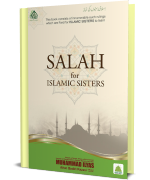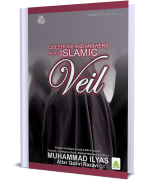
How privileged lady is the virtuous Sayyidatuna Bibi Aaminah رَضِیَ اللهُ تَعَالٰی عَنْهَا since she has the honour of being the illustrious mother of our Glorious Rasool صَلَّى اللهُ تَعَالٰى عَلَيْهِ وَاٰلِهٖ وَسَلَّم. Her father’s name was Wahb Bin ‘Abdul Manaaf and mother’s name Barrah. (Dalaail-un-Nubuwwah, vol. 1, pp. 183)
Admirable traits
Sayyidatuna Bibi Aaminah رَضِیَ اللهُ تَعَالٰی عَنْهَا was incredibly pious and abstinent, a lady of remarkable self-purity, integrity, decency, honour and faith, surpassing all other Qurayshi women in paternal/maternal lineage and virtues. (Dalaail-un-Nubuwwah, vol. 1, pp. 102, paraphrased)
Marriage story
When her father Wahb Bin Manaaf witnessed Sayyiduna Abdullah’s رَضِىَ اللهُ تَعَالٰی عَـنْهُ merits, he developed tremendous love and admiration for him, subsequently returning home determined to marry the apple of his eyes, Sayyidatuna Aaminah رَضِیَ اللهُ تَعَالٰی عَنْهَا to him and him only.
Consequently, he disclosed this secret intention to Sayyiduna ‘Abdul Muttalib رَضِىَ اللهُ تَعَالٰی عَـنْهُ through some friends. Sayyidatuna Aaminah رَضِیَ اللهُ تَعَالٰی عَنْهَا possessed all the traits that Sayyiduna ‘Abdul Muttalib رَضِىَ اللهُ تَعَالٰی عَـنْهُ was searching for in a bride for his dear son Sayyiduna ‘Abdullah رَضِىَ اللهُ تَعَالٰی عَـنْهُ, hence he gladly approved. So Sayyiduna ‘Abdullah رَضِىَ اللهُ تَعَالٰی عَـنْهُ was married to Sayyidatuna Bibi Aaminah رَضِیَ اللهُ تَعَالٰی عَنْهَا when he was 24 years old and the Noor (light) of Sayyiduna Muhammad صَلَّى اللهُ تَعَالٰى عَلَيْهِ وَاٰلِهٖ وَسَلَّم was transferred from Sayyiduna ‘Abdullah to Sayyidatuna Bibi Aaminah رَضِیَ اللهُ تَعَالٰی عَنْهَا. (Madarij-un-Nubuwwah, vol. 2, pp. 12-13)
The only blessed child
Muhammad Mustafa, Ahmad Mujtaba صَلَّى اللهُ تَعَالٰى عَلَيْهِ وَاٰلِهٖ وَسَلَّم was the only blessed child of Bibi Aaminah رَضِیَ اللهُ تَعَالٰی عَنْهَا. (Tabqat Ibn Sa’d, vol. 1, pp. 79)
Sacred demise
On her return from a routine visit to Sayyiduna Abdullah’s رَضِىَ اللهُ تَعَالٰی عَـنْهُ prestigious grave, accompanied by Sayyiduna ‘Abdul Muttalib and Sayyidatuna Umm-e-Ayman, she passed away at a location named “Abwaa”, which was also to be her final resting place. (Ansaab-ul-Ashraaf, vol. 1, pp. 103)
Divine protection for her grave
Once some infidels passed by Abwaa and wished to hurt our Glorious Rasool’s heart by removing Sayyidah Aaminah’s رَضِیَ اللهُ تَعَالٰی عَنْهَا blessed body from her blessed grave, but Allah عَزَّوَجَلَّ granted protection to the mother of His Beloved Rasool صَلَّى اللهُ تَعَالٰى عَلَيْهِ وَاٰلِهٖ وَسَلَّم by preventing the infidels from executing this evil scheme. (Al-Kamil fit-Tareekh, vol. 1, pp. 361)
Deep love for mother
Once on a visit to his mother’s grave, our Glorious Rasool صَلَّى اللهُ تَعَالٰى عَلَيْهِ وَاٰلِهٖ وَسَلَّم began to weep. When asked the reason, he صَلَّى اللهُ تَعَالٰى عَلَيْهِ وَاٰلِهٖ وَسَلَّم responded: Memories of my mother’s compassion and benevolence made me cry. (As-Seerat-ul-Halbiyyah, vol. 1, pp. 154)
Kul jahan ki ma’ayn haun tum per fida
Tum Muhammad ki bani ma Aaminah
You are the mother of Muhammad, Aaminah
May all the mothers of the world be sacrificed for you, Aaminah
His illustrious parents are believers
Respectable Quranic commentators have proved that there is evidence in the Glorious Quran for the eminent parents رَضِىَ الـلّٰـهُ تَعَالٰی عَـنْهُمَا of our Beloved Rasool صَلَّى اللهُ تَعَالٰى عَلَيْهِ وَاٰلِهٖ وَسَلَّم being believers. Here is that holy Ayah:
وَ تَقَلُّبَكَ فِی السّٰجِدِیْنَ(۲۱۹)
Translation from Kanz-ul-Iman: And your transferal inside prostrators.
(Part 19, Surah Ash-Shu’ara, Ayah 219)
‘Allamah Aaloosi رَحْمَةُ اللهِ تَعَالٰی عَلَيْه remarks: This blessed Ayah proves that the parents رَضِىَ الـلّٰـهُ تَعَالٰی عَـنْهُمَا of our Beloved Rasool صَلَّى اللهُ تَعَالٰى عَلَيْهِ وَاٰلِهٖ وَسَلَّم are Muslims. (Ruh-ul-Ma’ani, vol. 19, pp. 184)
May Allah عَزَّوَجَلَّ have mercy on them and forgive us for their sake without accountability!
اٰمِیْن بِجَاہِ النَّبِیِّ الْاَمِیْن صلَّی اللہ تعالٰی علیہ واٰلہٖ وسلَّم









Comments